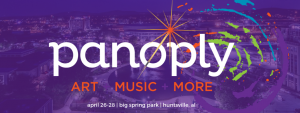

At the same time, mobile phone use is growing throughout the country, and particularly in urban centres including Nairobi. She called, she Googled, she knew: girls' secondary education, interrupted school attendance, and educational use of mobile phones in Nairobi: Girls in Kenya commonly face multiple barriers to school attendance. Despite the large numbers of people accessing the BBC Janala media products, there is a gendered digital divide, with much fewer women accessing the web and mobile lessons in particular. As a response to some of the issues identified in this research, the British Council in Bangladesh is piloting an English and ICT project for girls, in partnership with BRAC Bangladesh, to try and address this gender digital divide. In this article, some of the ethical considerations that emerged during an action research project undertaken in a community of secondary school girls in Nairobi, Kenya will be explored.Ī gender digital divide? Women learning English through ICTs in Bangladesh: an analysis of the BBC Janala project in Bangladesh in learning English for economic purposes. However, there remains concern about our implementing appropriate ethical practice when we are conducting digital research with people, including girls, who are considered vulnerable. The use of digital technology, particularly cell phones, is growing as a medium for data collection in social research. “Can You Really See What We Write Online?”: Ethics and Privacy in Digital Research with Girls This culminated in an evaluation report which was incorporated into a larger USAID report on the partnership outcomes. Qualitative research methods such as focus group discussions and structured interviews were deployed.

We traveled to Manila and served as the primary data collector among Mindanao youth involved in the partnership, as well as senior project implementers. Our Work: Working with an additional external evaluator, Panoply Digital led a field-based evaluation of the higher education partnership on behalf of Higher Education for Development (HED). The project aimed to provide quality life skills combined with targeted workforce skills to create pathways for reintegration of out-of-school youth (OSY) as productive members of their communities. Scope of Project: USAID/Philippines’ University Partnership Linking Out-of-School Youth to Agri-Entrepreneurship and Development to promote Job Opportunities (UPLOAD JOBS) Project for Mindanao was a three-year initiative that sought to address the key constraints to peace and stability in Midsayap, Mindanao. We partnered with a boutique communications and design firm, Big Blue Communications, who have created all the sound and visuals, including whiteboard animations.

This course can now be found on our site.
Panoply org how to#
The course teaches participants the main issues around women's access to, and use of mobile and other ICTs, and how to integrate gender and ICT into development programming. Our Work: Based on rigorous research, Panoply Digital created a Gender and ICT training course for internal USAID staff and implementing partners, delivered online, on mobile and through face-to-face workshops. mSTAR seeks to increase access to, and use of, mobile and digital technologies by low-income individuals, civil society, local government institutions and private-sector stakeholders. Scope of Project: The FHI 360 Mobile Solutions Technical Assistance and Research (mSTAR) project is a programme that fosters the rapid adoption and scale-up of digital finance, digital inclusion and mobile data in developing countries. Our Work: Working closely with UN Habitat, Panoply Digital is developing an online learning programme for city managers and municipal technicians in small to intermediate sized cities in sub-Saharan Africa to complement the work being done in person by UN Habitat. It is understood as a set of training exercises and activities directed at municipalities that kick start the resilience action planning process. It is designed as an enabling rather than prescriptive tool. The main principle of the CityRAP is ownership by the local government. The cityRAP tool trains city managers and municipal technicians in small to intermediate sized cities in sub-Saharan Africa to understand and plan actions aimed at reducing risk and building resilience through the elaboration of a City Resilience Action Plan. Scope of Project: UN Habitat wanted to extend the reach of their current programmes by bringing their cityRAP tool into a digital education context.


 0 kommentar(er)
0 kommentar(er)
